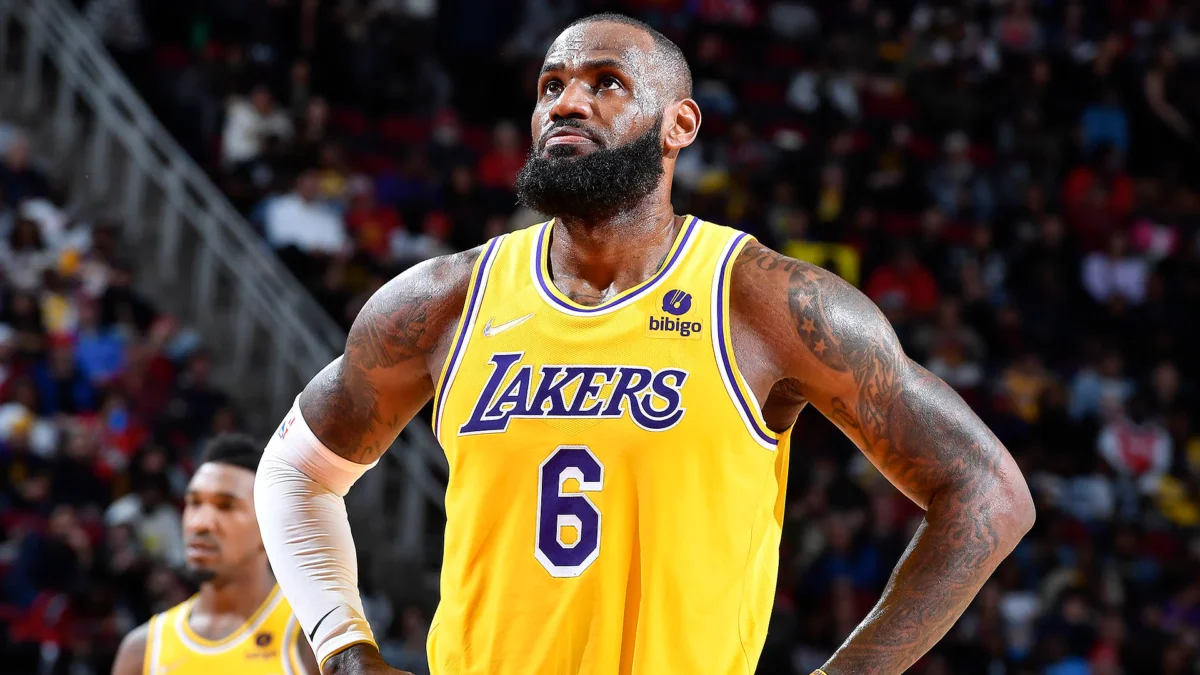
Imagine being a young NBA player, stepping onto the court with legends like Tim Duncan, LeBron James, or Kobe Bryant. It’s a dream come true, right? But what if those legends were not just your teammates, but also your mentors? In the world of professional basketball, the power of mentorship has played a significant role in shaping the careers of many players.
Mentorship in the NBA goes beyond simple guidance; it’s about passing on knowledge, fostering camaraderie, and creating a legacy. Let’s dive into the impact of veteran mentors, notable mentor-protege relationships, coaching influence, and the future of mentorship in the NBA.
The Impact of Veteran Mentors
Veteran mentors have been instrumental in shaping the careers of younger players in the NBA. From the Oklahoma City Thunder’s acquisition of Derek Fisher in 2012 to the mentoring program initiated by the National Basketball Players Association, it’s evident that the league recognizes the value of experienced players guiding the new generation.
Hakeem Olajuwon, Steve Nash, and Tim Duncan are just a few examples of veteran mentors who have shared their invaluable knowledge, attitude, and basketball IQ with the young players they’ve guided.
These mentors not only provide guidance on the court, but also help young players navigate the pressures of the NBA, from media scrutiny to personal growth. For instance, the mentorship between David Robinson and Tim Duncan, nicknamed the “Twin Towers,” led to a successful career for Duncan and multiple championships for the San Antonio Spurs.
The impact of veteran mentors is undeniable, and as we explore the different aspects of mentorship, it becomes clear that their influence goes beyond the game itself.
Championship Mindset
A championship mindset is all about doing your best, having a good attitude, working hard, and constantly striving to learn and improve. Veteran mentors help instill this winning mentality in young players by providing guidance, support, and advice. One notable example is the mentorship between Kevin Garnett and Rajon Rondo, which significantly contributed to Rondo becoming an All-Star player.
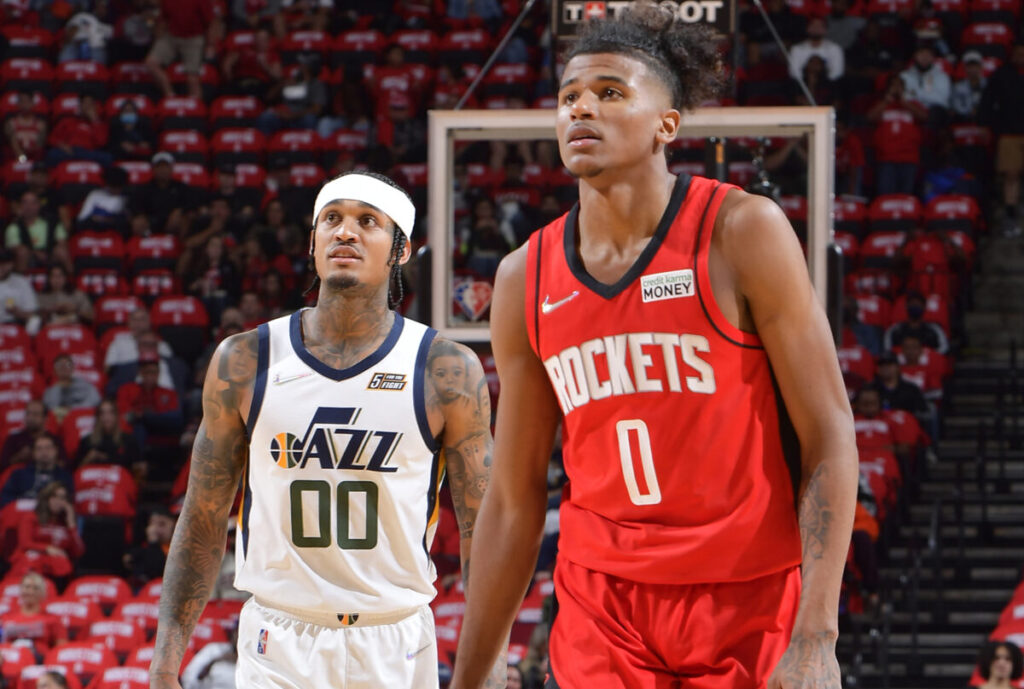
Coaches also play a crucial role in cultivating a championship mindset among players. They provide guidance, support, and advice to mentor-protege relationships, helping them develop their skills and better grasp the game. The collaboration between veteran mentors and coaches creates a powerful synergy that drives the success of the team and the growth of individual players.
Handling Pressure
The pressure in the NBA can be overwhelming, with high expectations to perform and win games, along with constant scrutiny from fans, media, and coaches. Veteran mentors can help players cope with pressure by providing advice on managing expectations and staying strong under pressure. They also help players stay focused and motivated even when faced with criticism and scrutiny.
Coaches can also provide support and guidance to help players deal with pressure. They play a vital role in showing players how to perform under pressure and stay concentrated and motivated even when facing criticism and close observation. Transitioning from a life of playing to coaching offers players a different perspective on the game, teaching them how to manage pressure more effectively.
Building Team Chemistry
Team chemistry is the foundation of any successful team and is built on trust, communication, and clarity of roles. Veteran mentors play a crucial role in fostering team chemistry by providing guidance and support to younger players, helping them understand their roles and responsibilities, and demonstrating how to work together as a team.
What it comes down to, I believe, is that mentoring often involves telling people what they need to hear, rather than what they want to hear. When you are able to be humbly honest with someone about a situation with which you have personal experience-even if you risk angering or hurting that person-you are offering the most valuable gift of all.
John Wooden, former American basketball coach and player
To maintain strong team chemistry, players must stay connected, set clear expectations, and provide positive feedback. Activities such as team-building exercises, setting goals, community involvement, and conflict resolution can help boost team chemistry. With the right guidance from mentors and coaches, players can develop strong relationships and foster an environment of success on and off the court.
Notable NBA Mentor-Protege Relationships
Throughout NBA history, there have been many notable mentor-protege relationships that have significantly impacted the league and the careers of the young men and players involved. These relationships highlight the power of mentorship in the NBA and how it helps younger players develop their skills and gain a deeper understanding of the game. In some cases, these relationships have even led to championships, proving the importance of experienced guidance in the league.
Let’s take a closer look at some of the most significant mentor-protege relationships in the NBA, such as Shaquille O’Neal and Kobe Bryant, LeBron James and Dwyane Wade, and Tim Duncan and Kawhi Leonard. We will explore the dynamics between these players, how their mentorship impacted their careers, and the legacy they’ve left on the league.
Shaquille O’Neal and Kobe Bryant
Shaquille O’Neal and Kobe Bryant were two of the most legendary players in NBA history. Both players were teammates on the Los Angeles Lakers and won three consecutive championships together from 2000 to 2002. However, their relationship was quite strained during their time together, making it unclear if Shaq ever acted as a mentor to Kobe.
Kobe Bryant and Shaquille O’Neal’s 2002 Finals Stats:
— 𝒂𝒏𝒕𝒉𝒐𝒏𝒚 ⁴⁴ (@hollowcedes) September 14, 2021
Kobe:
– 26.8 PPG | 5.8 REB | 5.3 AST
– 51.4 FG% | 62.3 TS% | 80.6 FT%
Shaq:
– 36.3 PPG | 12.3 REB | 3.8 AST
– 59.5 FG% | 63.6 TS% | 2.8 BPG
Completed the Series Sweep and their 3rd Straight Championship. pic.twitter.com/3bqFNeL0VU
Despite their turbulent relationship, the partnership between Shaq and Kobe had a significant impact on their careers and the success of the Lakers. When Shaq left the Lakers in 2004, it marked the end of their championship streak. However, Kobe’s rise as the team leader eventually saw them win two more titles in 2009 and 2010. Their partnership, though rocky, demonstrated the potential impact of mentorship in the NBA.
LeBron James and Dwyane Wade
LeBron James and Dwyane Wade formed one of the most iconic duos in NBA history when they joined forces on the Miami Heat in 2010. Wade, already an NBA champion, played a significant role in helping LeBron secure his first NBA title in 2012. As a mentor, Wade taught LeBron the importance of doing what the team needed, not just focusing on individual stardom.
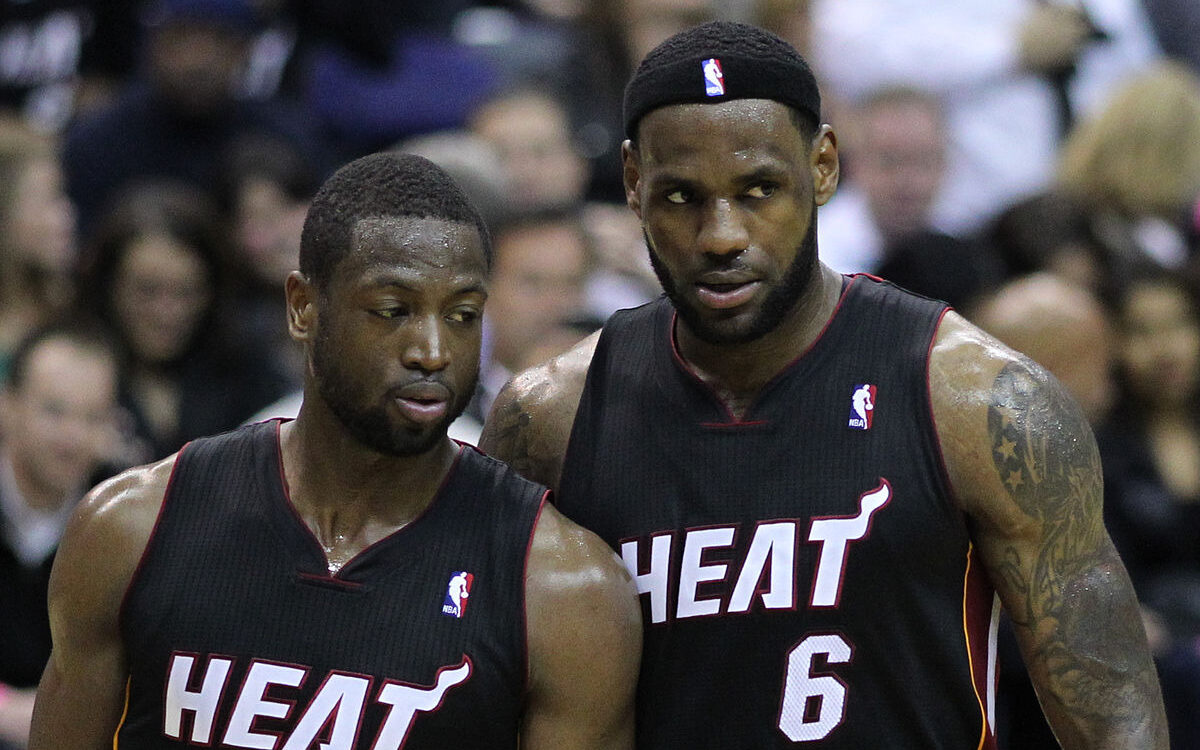
Wade’s maturity and understanding of when to take a step back allowed LeBron to flourish and lead the Heat to two championships during their time together. The partnership between LeBron and Wade showcases the importance of mentoring in the NBA, highlighting how experienced players can help younger players develop their skills and contribute to the team’s success.
Tim Duncan and Kawhi Leonard
Tim Duncan and Kawhi Leonard shared a special mentor-protege relationship during their time together on the San Antonio Spurs. Duncan, a five-time NBA champion, took Kawhi under his wing when he joined the Spurs in 2011. Under Duncan’s guidance, Kawhi developed into one of the league’s premier players, winning two championships with the Spurs and earning Finals MVP honors in 2014.

The mentorship between Tim Duncan and Kawhi Leonard proved to be a significant factor in the Spurs’ success during their time together. Their relationship exemplifies the power of mentorship in the NBA and how it can contribute to the growth of individual players and the overall success of the team.
Coaching Influence in Mentorship
Coaching plays a vital role in mentorship within the NBA, as coaches help players reach their potential and achieve their goals. By providing guidance, support, and advice, coaches can foster mentor-protege relationships that empower players to learn from each other and develop their skills. Coaches also create an environment that promotes collaboration and communication, which is essential for player development.
Some of the most successful coaches in NBA history, such as Phil Jackson, Gregg Popovich, and Erik Spoelstra, have had a significant impact on their teams through their mentorship efforts. Let’s delve deeper into the influence of coaching on mentorship by examining the coaching styles and systems of these legendary coaches and how they’ve helped shape the careers of countless NBA players.
Phil Jackson’s Triangle Offense
Phil Jackson, one of the most successful coaches in NBA history, implemented the Triangle Offense to great success during his time with the Chicago Bulls and the Los Angeles Lakers. The Triangle Offense is a system created by Coach Tex Winter that emphasizes ball movement, player movement, and spacing to maximize offensive efficiency.
This system allowed superstars like Michael Jordan and Kobe Bryant to showcase their individual skills while also teaching their teammates the intricacies of the offense. Jackson’s Triangle Offense not only led to multiple championships, but also allowed its key players to become mentors themselves. By learning from one of the greatest coaches of all time, these players were able to pass on their knowledge and experience to the next generation of NBA stars.

Gregg Popovich’s Spurs Dynasty
Gregg Popovich, the long-time head coach of the San Antonio Spurs, has created a culture of mentorship within the organization that has contributed to their incredible success over the years. Under Popovich’s leadership, the Spurs have won five NBA championships and consistently been one of the top teams in the league.
Popovich’s emphasis on accountability, hard work, and teamwork has fostered a mentorship culture where veteran players take on leadership roles and guide younger players to success. This mentorship culture has been a crucial factor in the Spurs’ sustained excellence, as demonstrated by the mentor-protege relationship between Tim Duncan and Kawhi Leonard, which we discussed earlier.
Erik Spoelstra’s Miami Heat
Erik Spoelstra, the head coach of the Miami Heat, played a significant role in nurturing the relationship between LeBron James and Dwyane Wade during their time together on the team. Spoelstra’s coaching style emphasized the importance of teamwork and allowed LeBron and Wade to develop a strong bond on and off the court.
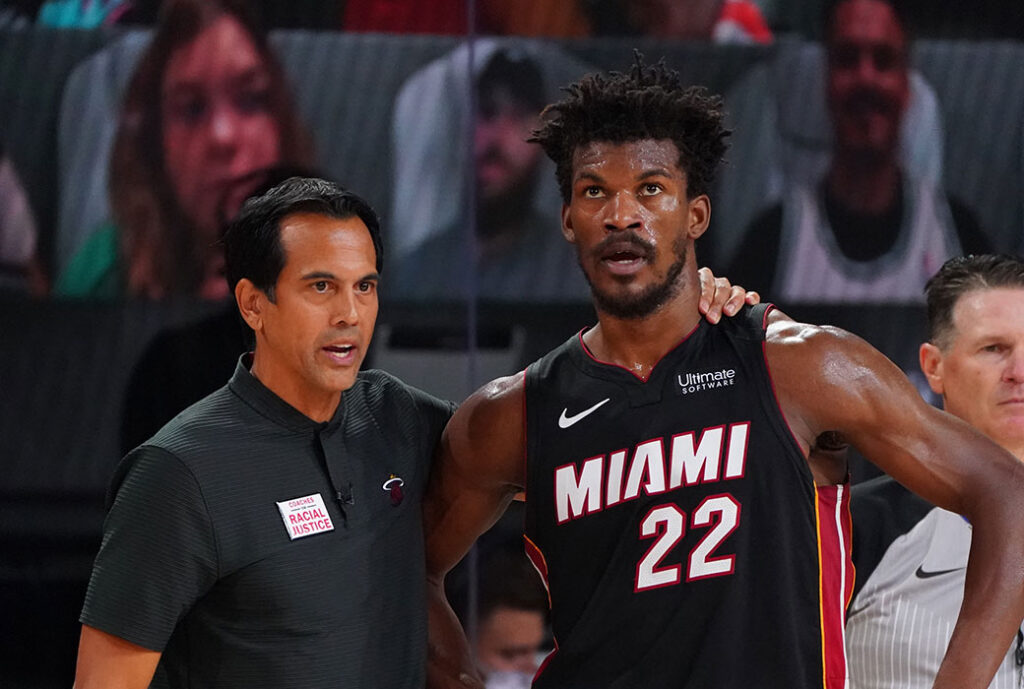
Under Spoelstra’s guidance, the duo achieved great success, winning two NBA championships together in 2012 and 2013. Spoelstra’s influence as a coach and mentor not only helped LeBron and Wade become better players, but also contributed to the overall success of the Miami Heat during their time together.
Transitioning from Player to Coach
Making the transition from player to coach in the NBA can be a challenging yet rewarding journey. Former players who become successful coaches often possess a deep understanding of the game, a wealth of experience, and strong connections within the coaching world. Some notable examples of players who have transitioned to coaching include Phil Jackson, Steve Kerr, and Jason Kidd, all of whom have had a significant impact on their teams through their mentorship efforts.
Let’s take a closer look at the journey of these former players who became successful coaches and mentors, including Steve Kerr’s transition from a championship-winning player to a championship-winning coach with the Golden State Warriors, Jason Kidd’s progression from an elite point guard to mentoring young talent as the head coach of the Milwaukee Bucks, and Tyronn Lue’s journey from player to championship-winning coach and mentor for LeBron James on the Cleveland Cavaliers.
Steve Kerr’s Golden State Warriors
Steve Kerr, a former NBA player and now the head coach of the Golden State Warriors, has successfully transitioned from player to coach, leading the Warriors to multiple championships since 2014. As a player, Kerr was a sharpshooter who won multiple championships with the Chicago Bulls and the San Antonio Spurs.
As the head coach of the Warriors, Kerr has been instrumental in guiding the team to success, instilling a championship mentality and strengthening team chemistry. His ability to connect with his players and share his wealth of experience and knowledge has been a key factor in the Warriors’ dominance during his tenure.
Jason Kidd’s Milwaukee Bucks
Jason Kidd, a former elite point guard and head coach of the Milwaukee Bucks from 2014 to 2018, transitioned from a successful playing career to mentoring young talent as a head coach. Kidd’s coaching style focused on developing young players and implementing a strong defensive mindset, which helped the Bucks make the playoffs in three of his four years as head coach.

Kidd’s tenure with the Bucks left a lasting impact on the organization, as he nurtured young talent like Giannis Antetokounmpo and Khris Middleton, helping them develop into All-Star players. His experience as a player and his ability to connect with his team allowed him to create a culture of growth and development within the Bucks organization.
Tyronn Lue’s Cleveland Cavaliers
Tyronn Lue, a former NBA player who became the head coach of the Cleveland Cavaliers in 2016, successfully transitioned from player to championship-winning coach and mentor for LeBron James. Lue guided the Cavaliers to the NBA Finals in 2016 and 2017, winning the championship in 2016 and helping the team create a championship mentality and build team unity.
Lue’s mentorship of LeBron James was crucial to the success of the Cavaliers during their time together. He helped LeBron hone his leadership skills and provided guidance on leading the team to victory.
Lue’s transition from player to coach demonstrates the potential for former NBA players to have a significant impact on the league as coaches and mentors.
The Future of Mentorship in the NBA
The future of mentorship in the NBA looks promising, with the league continuing to invest in programs and partnerships that foster mentor-mentee relationships. As we’ve seen throughout this article, mentorship has played a significant role in the careers of many NBA players, helping them develop their skills, manage pressure, and contribute to their team’s success.
Now, let’s take a glimpse into the potential future of mentorship in the NBA by examining some upcoming mentor-protege relationships, such as Zion Williamson and JJ Redick, Luka Doncic and Dirk Nowitzki, and Ja Morant and Mike Conley. We’ll explore the potential impact of these relationships on the league and the players involved.
Zion Williamson and JJ Redick
JJ Redick, a veteran sharpshooter, has expressed excitement in mentoring young star Zion Williamson in New Orleans. Redick’s experience and leadership can help Williamson hone his skills, develop his game, and manage the demands of the NBA.
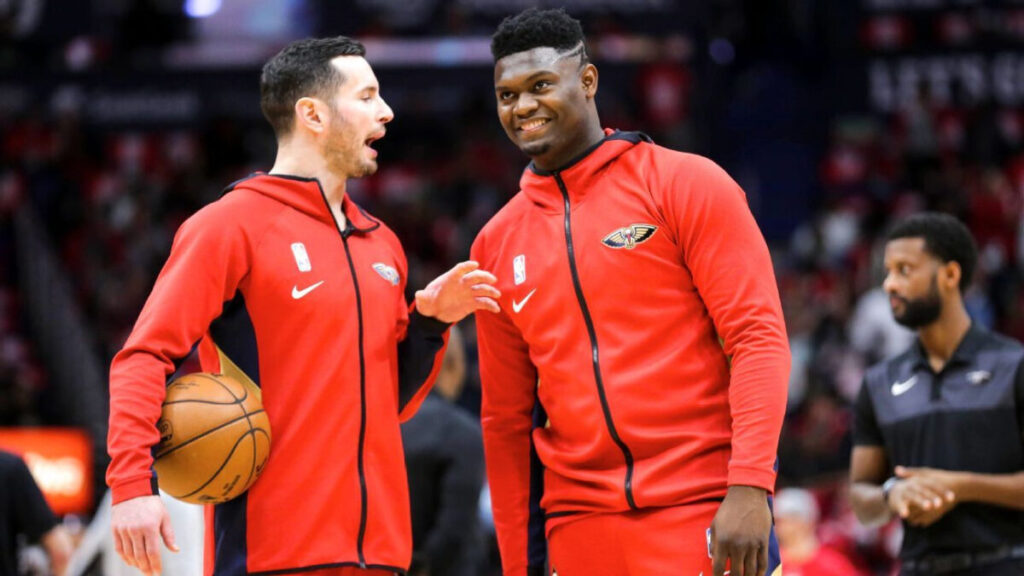
The mentor-protege relationship between Zion and JJ is a perfect example of how veteran players can help younger players progress and grow in their careers. JJ’s guidance can help Zion sharpen his skills and become a dominant force in the league, while also providing valuable tips on how to cope with the demands and pressures of the NBA.
Luka Doncic and Dirk Nowitzki
Luka Doncic and Dirk Nowitzki, two European stars who have both played for the Dallas Mavericks, share a unique bond in the NBA. Although Nowitzki has retired, he has been seen giving Doncic tips on the court, showcasing his willingness to mentor the young star.
Nowitzki’s experience and knowledge of the game can be invaluable to Doncic as he continues to develop into one of the league’s premier players. The potential mentorship between Luka and Dirk highlights the importance of mentorship in the NBA and the impact it can have on the growth and development of young stars like Doncic.
Ja Morant and Mike Conley
Mike Conley, a veteran point guard who was traded to the Utah Jazz in 2019, left a lasting impact on the Memphis Grizzlies organization. As a potential mentor for Ja Morant, the Grizzlies’ young point guard, Conley’s experience can help guide Morant as he takes charge in Memphis.

Conley’s knowledge of the game, his leadership skills, and his ability to handle pressure can all be beneficial to Morant as he gets accustomed to the NBA. The potential mentorship between Conley and Morant highlights the importance of experienced guidance in the league and how it can contribute to the growth of individual players.
Summary
Throughout this exploration of mentorship in the NBA, we have seen the significant impact of veteran mentors, coaching influence, and the transition from player to coach on the careers of multiple players. From the mentor-protege relationships of Shaquille O’Neal and Kobe Bryant to the coaching philosophies of Phil Jackson and Gregg Popovich, the power of mentorship has proven crucial in shaping the NBA’s brightest stars and fostering a culture of success.
As we look to the future of mentorship in the NBA, it is clear that the league will continue to invest in programs and partnerships that nurture these relationships with young people. The impact of these mentor-protege bonds will undoubtedly shape the careers of the next generation of NBA stars, leaving a lasting legacy on the league and inspiring future players to pass on their knowledge, experience, and passion for the game.
Frequently Asked Questions
Did Kobe Bryant have a mentor?
Yes, Kobe Bryant had a mentor. He spoke of the immense help he got from them and even mentioned how asking the right questions often led to useful information that improved his game. Mentorship can be a powerful tool for any athlete, and Kobe was no exception. He was able to take the advice.
Who did LeBron mentor?
LeBron James has made a name for himself as an inspirational mentor to many, including Kyrie Irving, Dion Waiters, and Anthony Davis. Over the years, he has offered guidance and support to help young athletes reach their goals and realize their potential. He’s truly been an incredible role model for those coming up in the sport.
Who is the oldest player to declare for the NBA draft?
Pablo Prigioni holds the record as the oldest player to declare for the NBA Draft. At 35 years old, Prigioni signed a one-year contract with the New York Knicks in July of 2012, making him the oldest rookie in NBA history when he made his debut on November 2nd.
Sources
1. thescore.com – Top 3 rookie-veteran mentorship pairings in the NBA
2. nba.com – How young NBA players find motivation through their veteran teammates
3. bleacherreport.com – 10 Best Current Player Mentors in the NBA
4. mentoring.org – The NBA Drives the Mentoring Movement In Real Life
5. cares.nba.com – My Brother’s Keeper





